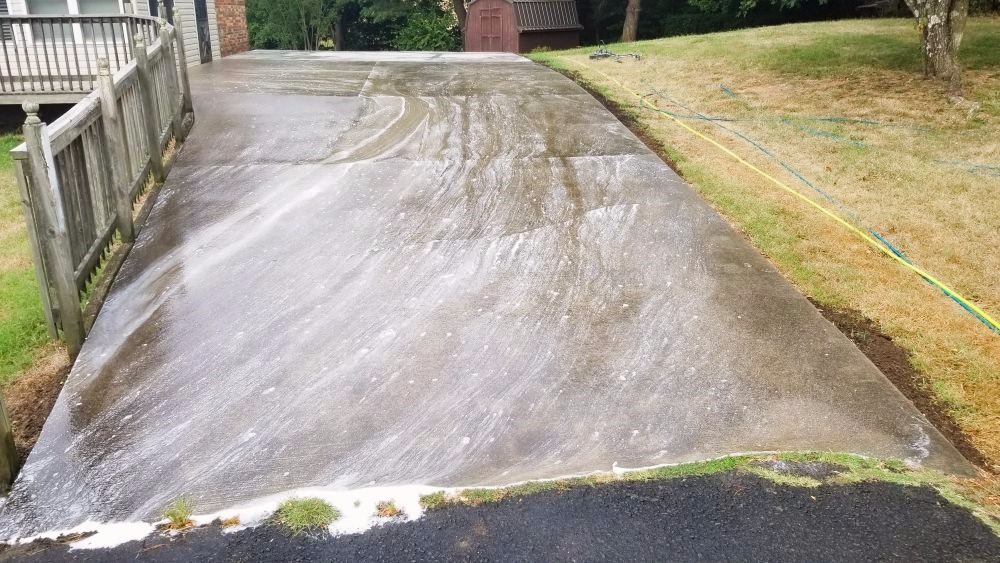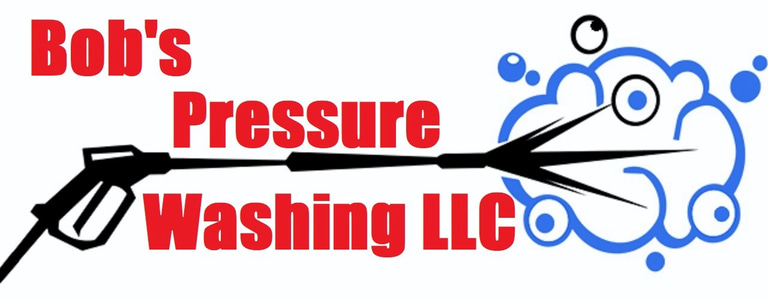Reviving Your Driveway: The Power of Pressure Washing Against Oil Stains and Grime
Is your driveway looking worn out and stained by oil, grease, and grime? Pressure washing is the ultimate solution to restore its original charm! Our expert team uses high-powered equipment to tackle even the toughest stains, lifting oil, dirt, and grime from deep within the surface. Not only does this clean up your driveway, but it also enhances the overall curb appeal of your home. Say goodbye to stubborn stains and hello to a fresh, clean driveway that looks brand new. Trust our pressure washing service to give your driveway the revival it deserves!
EXTERIOR CLEANING SERVICE PROCESSESBASIC HOME MAINTENANCECURB APPEALPRESSURE WASHING SERVICES


Understanding the Impact of Oil Stains and Grime
Driveways are subjected to a variety of stresses that can significantly impact their surface over time. The accumulation of oil stains and grime is a common issue that arises from daily use, resulting from the weight of vehicles parked or driven over the surface. As automobiles transition in and out, they frequently leak oil and other fluids, which creates unsightly stains that can penetrate the surface material of the driveway. These oil stains not only detract from the aesthetic appeal of the driveway but can also compromise its integrity if left untreated.
The effects of weather exposure further contribute to the deterioration of driveway surfaces. Rain, snow, and high humidity can exacerbate the issue, allowing contaminants to seep deeper into the driveway material. Seasonal changes, including thermal contraction and expansion, can also create small cracks that provide additional entry points for dirt and grimy residues. Over time, these elements contribute to a slippery, hazardous surface that is difficult to maintain and can pose safety risks.
In addition to oil and grime, driveways are exposed to various contaminants such as dust, dirt, and chemicals from lawn care products. These residues can accumulate and form a stubborn layer of grime that diminishes the surface quality. When neglected, the combination of these substances can lead to more severe degradation, including potholes and surface cracks. Regular maintenance, including pressure washing, is vital to remove these contaminants, restoring not only the visual appeal of your driveway but also contributing to its longevity. Taking proactive measures to address oil stains and grime will significantly enhance the health and durability of the driveway, ensuring it can withstand the test of time and daily wear and tear.
The Challenges of Removing Stubborn Oil Stains
Oil stains on concrete driveways present significant challenges for homeowners due to the unique characteristics of concrete as a material. Concrete is a porous surface, meaning it contains numerous tiny holes and spaces that can easily absorb liquids. When oil spills onto a driveway, it penetrates these porous spaces and binds to the concrete, creating deeply entrenched stains that are often resistant to conventional cleaning methods. The minute structure of concrete works against homeowners, allowing the oil to seep in and obscure the surface's original appearance.
One significant factor in the difficulty of removing oil stains is the composition of the oil itself. Unlike water-based stains, oils do not evaporate quickly and instead cling to the concrete surface. Traditional cleaning agents, such as household detergents or soaps, are often ineffective in breaking down the molecular structure of oil, which can lead to frustration for homeowners seeking to restore their driveways. Furthermore, many conventional cleaning solutions may be able to lift the surface layer of the stain but do little to address the oil that has seeped deeper into the material. This often results in a permanently stained driveway if not treated with appropriate methods.
The limitations of more traditional techniques like scrubbing and rinsing only reinforce the need for effective solutions to tackle these stubborn stains. Homeowners may find themselves investing time and effort into cleaning processes that yield minimal results, underscoring the necessity for a more powerful option. For such persistent issues, methods like pressure washing emerge as highly viable alternatives, as they can penetrate the surface and effectively eliminate both the visible stains and the oils that have caused them. This understanding is vital for those looking to rejuvenate their driveways and restore their aesthetic appeal.
The Benefits of Pressure Washing for Driveway Restoration
Pressure washing is increasingly recognized as an effective approach to revitalize driveways marred by oil stains, grime, and other residues. This method employs a high-pressure water spray to remove unwanted materials, making driveways more visually appealing while enhancing safety and functionality. The equipment used—typically a power washer—can generate water pressures ranging from 1,500 to 3,000 PSI, enabling it to tackle even the most stubborn stains.
The operation of pressure washing involves directing a powerful stream of water at the surface, which dislodges dirt and embedded substances without the need for harsh chemicals in many cases. For particularly stubborn oil stains, additional cleaning agents may be used, but the primary mechanism remains water pressure. This ensures a thorough yet gentle cleaning process, safeguarding the surface integrity of your driveway while effectively lifting away contaminants.
Among its numerous benefits, pressure washing not only restores the appearance of driveways but also extends their lifespan. Regular maintenance through pressure washing can prevent the accumulation of harmful materials that can degrade your driveway over time. Investing in this cleaning method can result in significant cost savings, as the need for expensive repairs or resurfacing may be reduced. Moreover, a clean driveway enhances curb appeal, potentially increasing property value and offering a welcoming entrance for visitors.
In addition to these advantages, pressure washing is also an environmentally friendly option. By utilizing high-pressure water, harmful chemicals that may contaminate runoff are often avoided. This green approach ensures that the driveway remains clean without negatively impacting the surrounding environment. Thus, pressure washing serves as an invaluable tool for maintaining driveway aesthetics and longevity while being cost-effective and eco-friendly.
Keeping Your Driveway Clean: Tips and Maintenance Strategies
Maintaining a clean driveway is essential not only for aesthetics but also for the longevity of the surface. One of the primary strategies to keep your driveway in good condition is to act quickly if an oil spill occurs. If you notice an oil stain, promptly blot the area with absorbent materials like paper towels or cat litter to soak up excess oil. Afterward, utilize a specialized degreaser or a mixture of dish soap and warm water to scrub the stain gently. Rinse the area thoroughly with clean water to ensure that no residue remains, which could lead to further staining.
In addition to addressing oil spills promptly, regular cleaning and pressure washing are critical components of driveway maintenance. It is recommended to perform pressure washing at least annually or bi-annually, depending on usage and environmental factors such as pollen or debris. A professional pressure washing service can effectively remove grime, mold, and other buildup that may not be easily eliminated with regular cleaning methods.
For routine maintenance, consider sweeping your driveway weekly to remove dirt and leaves. This simple practice helps prevent stains and keeps the surface looking pristine. Furthermore, applying a sealant every few years can provide an additional layer of protection against stains and wear, extending the life of your driveway.
Investing in high-quality cleaning products specifically designed for your driveway material can enhance effectiveness. Always follow the manufacturer's instructions for best results, and keep in mind that choosing pH-neutral cleaners can help protect the surface. Additionally, monitoring for cracks and surface wear allows for timely repairs, preventing larger problems that may lead to costly resurfacing in the future.
By implementing these maintenance strategies and taking immediate action in the event of spills, homeowners can ensure their driveways remain clean and in optimal condition for years to come.
